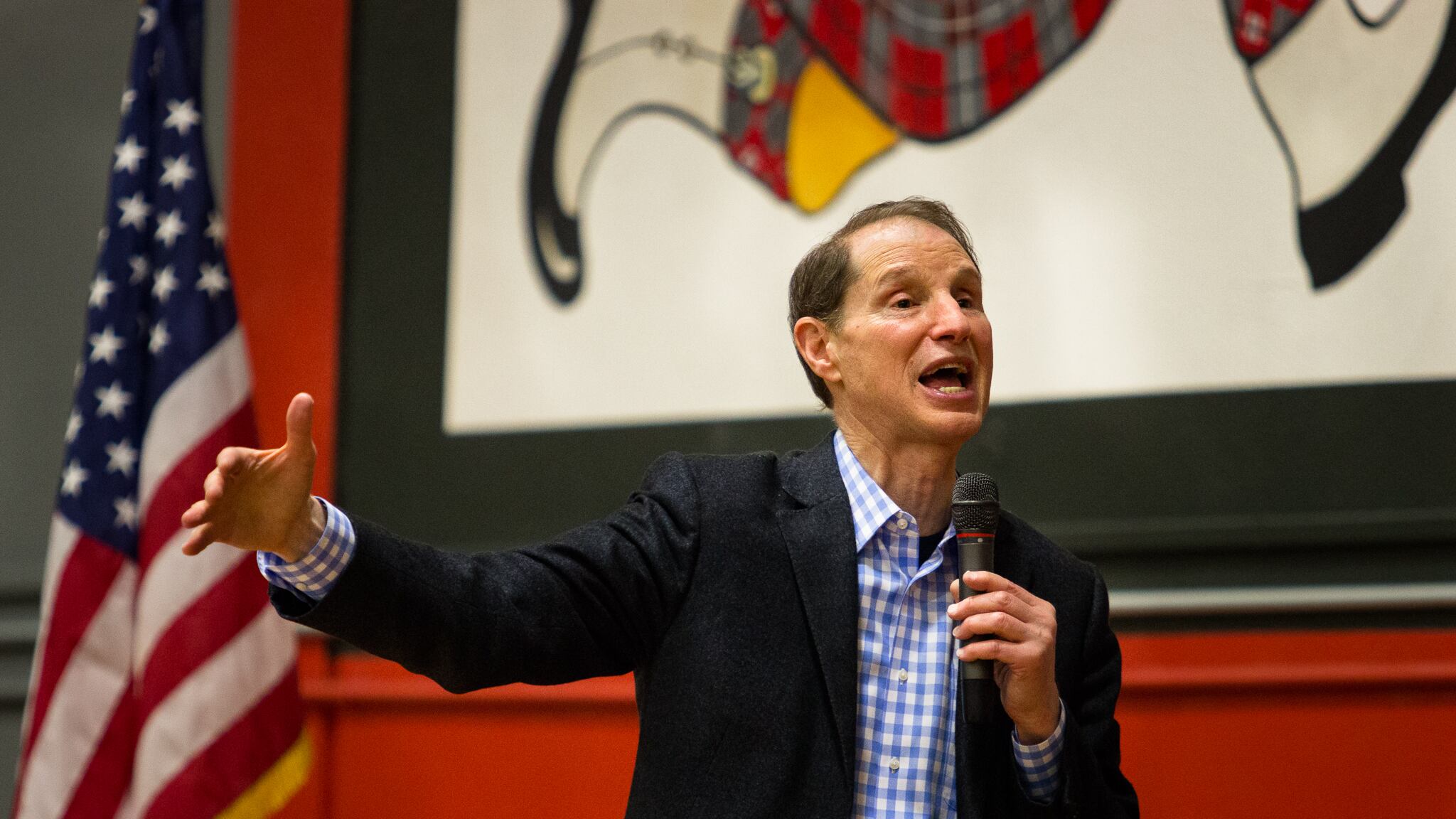Starting April 10, Facebook CEO Mark Zuckerberg and other tech leaders from Google and Twitter may testify to Congress on the future of data privacy.
At the center of the storm is U.S. Sen. Ron Wyden (D-Ore.).
Wyden, who will speak at TechfestNW this Friday, says he is looking for for substantive answers from Zuckerberg & Co.
"The bottom line is, I'm not going to accept this ongoing parade of apologies from tech companies, who after years and years of sitting on their hands, either sat on the sidelines, or possibly worse, misused Americans' most private information," Sen. Wyden told WW on Monday.
Zuckerberg's dithering is legendary, as is his frequent absence from Washington, D.C., but Facebook is currently weathering unprecedented public criticism — and a fall in stock price — in the wake of revelations it allowed Cambridge Analytica to cull data on 50 million Americans during the 2016 election.
With little oversight & no meaningful intervention from @Facebook, Cambridge Analytica was able to use Facebook- developed & marketed tools to weaponize detailed psychological profiles against tens of millions of Americans.
— Ron Wyden (@RonWyden) March 19, 2018
Wyden said Monday his office hadn't yet heard back from the social media giant since he sent a March 19 letter demanding detailed answers on its practices and history with Cambridge Analytica.
"This is one of those transformative moments that's going to affect [Facebook] for a long time to come," Wyden said.
I wrote a letter to Mark Zuckerberg asking @facebook to detail the extent of misuse of its users’ private information: pic.twitter.com/N9CYC50AHG
— Ron Wyden (@RonWyden) March 19, 2018
Wyden, a member of the Senate Select Committee on Intelligence, has long been a booster of the tech industry; nationally, Democrats have been vocal supporters of Facebook. Now, however, Wyden's calls for answers suggest how the worm has turned as Democrats seek gains nationally in November's elections.
Wyden, who became a United States senator in 1996 after 14 years in the House of Representatives, can remember when he helped pass the Communications Decency Act of 1996. Since then, he says, social media companies have "fallen down on the job."
"I wrote the rules of the road for the Internet, back in 1998. It was part of the Communications Decency Act, and it provides these companies with a sword and a shield. They couldn't be held liable for something posted on their site. But they also were supposed to understand that they had to take steps to support the public interest."
It's a choice, Wyden insists, and it's as much about what hasn't been done as what has:
"They don't use the authority we gave them to police their platforms."
Wyden spoke to Willamette Week while driving to a town hall in Wheeler County, Oregon's least populous. Ironically, a conversation about tech was cut off five times by lack of cell phone receptivity.
Audio recordings of the town hall provided show Wyden's folksy wisdom — for example, Wyden gets laughs when he notes that his eldest child refers to the "so-called intelligence committee" — as well as his undiminished advocacy for protecting Americans' personal data.
Now, he points out, "we have a whole host of new surveillance issues."
I have serious concerns about the role @Facebook played in facilitating and permitting the covert collection and misuse of consumer information by Cambridge Analytica.
— Ron Wyden (@RonWyden) March 19, 2018
Wyden says social media companies should be required to include an "opt in" measure — "affirmative consent" — before they're allowed to access users' personal data, not just a "workaround" or a way to opt out buried in fine print on the bottom of a webpage.
"The real question is, will these companies take steps to ensure that users control their data?" Sen. Wyden says. "Are users in the drivers seats, or are they just sort of conduits for people who want to make money?"
Wyden will be discussing this in his TFNW talk.
